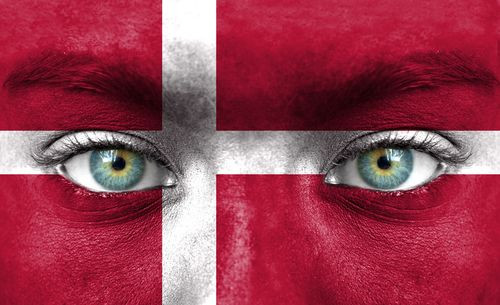The Happiest Place On Earth: Danes Key To Happiness May Be Linked To Gene Mutation Influencing Serotonin Levels

We all know the popular saying: “the closer a nation’s genetic makeup is to Denmark, the happier the country is.” That is according to a recent study published by the German economic research institute IZA in its Discussion Paper series. Economists at the University of Warwick’s Center for Competitive Advantage in the Global Economy (CAGE) suggest genetics could hold the key to explaining a nation’s happiness levels, which helps explain why Danes are ranked the happiest people on Earth. The genetic mutation of the length of the gene that influences the re-uptake of serotonin can determine whether a nation and its citizens are susceptible to negative stimuli and lower life satisfaction.
Denmark constantly tops the national happiness rankings every year, including this year’s United Nations World Happiness report. The report measures factors that are considered what makes a nation happier than the other, including GDP, having someone to count on,” “perceived freedom to make life choices,” and more. While these factors do contribute to a nation’s happiness, even after adjusting for GDP, socio-economic, and cultural variables, scientists still cannot find an explanation for Denmark’s ranking.
To examine the famous puzzle in the world of social science, Dr. Eugenio Proto and Professor Andrew Oswald, based in the Department of Economics, explored a new avenue of what makes a country the happiest in the world. Proto and Oswald collected data on 131 countries from a number of international surveys, including the Gallup World Poll, World Value Survey, and the European Quality of Life Surveys. They proceeded to link cross-national data on genetic distance and well-being, and to explore the within-nation geography of happiness.
The research contains three forms of evidence, according to the Warwick news release, to observe the genetic patterns and well-being levels in a nation. After observing international survey data, and controlling variables including GDP, social welfare policies, geography, culture, and religion, they found the “greater a nation’s genetic distance from Denmark, the lower the reported well-being of that nation.”
The second form of evidence suggests an association between mental well-being, and a mutation of the gene that influences the re-uptake of serotonin, linked to human mood. It is here the researchers saw Danish birth was associated with specific versions of a gene that influences brain levels of serotonin. Compared to people from other nations, Danes were less likely to possess a short version of the gene linked to low levels of satisfaction.
"We looked at existing research which suggested that the long and short variants of this gene are correlated with different probabilities of clinical depression, although this link is still highly debated,” said Proto in the news release. "The short version has been associated with higher scores on neuroticism and lower life satisfaction.” Among the 30 nations included in this part of the study, Denmark and the Netherlands have the lowest percentages of people with the short variant of this gene.
The final piece of evidence looked at whether the link between genetics and happiness also held true across generations, continents, and the Atlantic Ocean. The researchers used data on the reported well-being of Americans, and then looked at which part of the world their ancestors came from. “The evidence revealed that there is an unexplained positive correlation between the happiness today of some nations and the observed happiness of Americans whose ancestors came from these nations, even after controlling for personal income and religion,” Oswald said, the Daily Mail reported.
The findings highlight three key points to happiness: the proximity a country is to Denmark, the gene mutation that influences serotonin levels, and traces of Danish ancestry. This study is supported by the UN’s World Happiness Report that found Denmark scored a 7.69 out of 10 in average life satisfaction, followed by four other northern European countries: Norway, the Netherlands, Switzerland, and Sweden. Denmark has also topped the European Commission’s "Eurobarometer" table of citizen well-being and happiness every year since 1973, according to the Irish Independent.
If that wasn’t enough to convince you why Denmark is the happiest nation on Earth, office policies may be at play, too. While Americans think it’s normal to hate their job, Danes have come up with the concept of arbejdsglæde, which means happiness at work. Their simple office policies include five to six weeks of vacation per year to constant training to help workers grow and develop.
While we can’t control our genes, we could take a more proactive role to leading simpler and happier lives.
Source: Oswald AJ, Proto E. National Happiness and Genetic Distance: A Cautious Exploration. IZA. 2014.
Published by Medicaldaily.com



























